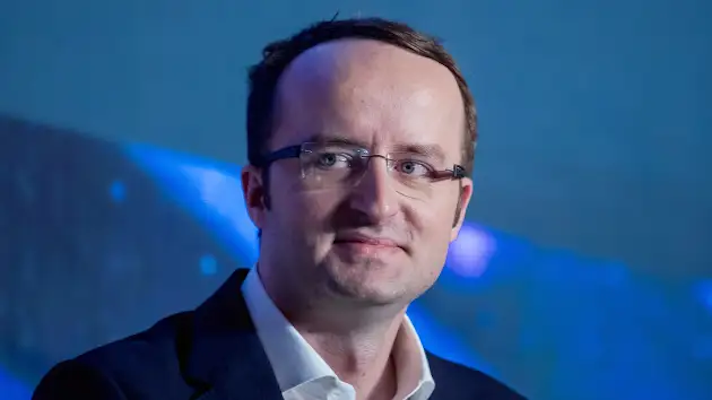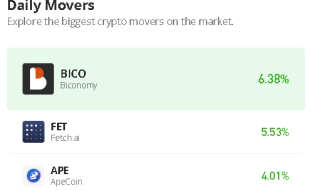Join Our Telegram channel to stay up to date on breaking news coverage
Everyone should be aware that Kris Marszalek’s business, Crypto.com, is secure and in capable hands. That is evident from his tweets and TV appearances.
It’s a reasonable strategy. For the majority of the year, the cryptocurrency markets have been in a free fall, with well-known names going bankrupt. Trust in the sector was destroyed when FTX failed last month, just after founder Sam Bankman-Fried claimed the cryptocurrency exchange’s assets were secure.
According to court documents and legal experts, FTX used client money for a variety of risky and allegedly fraudulent activities while Marszalek, who has operated out of Asia for more than a decade, assured clients that their funds belonged to them and were available.
Bankman-Fried has asserted that he was unaware of any fraud. Regardless, bankruptcy proceedings have begun, leaving FTX clients with billions of dollars in losses.
One of the biggest cryptocurrency exchanges in the world, Crypto.com, might be in good shape. The company released its unaudited, incomplete proof of reserves following the FTX collapse. The disclosure showed that 20% of its funds were invested in the Shiba Inu meme token, the second largest allocation next to their bitcoin investments. According to Nansen Analytics, this proportion has decreased from the time of the initial release to roughly 15%.
In a livestream on YouTube on November 14, Marszalek claimed that the wallet addresses were an accurate representation of the customer holdings.
On Friday, Crypto.com released an audited proof of reserves demonstrating that all deposits are fully backed by Crypto.com’s reserves and that customer assets were held one to one.
The Mazars Group, a former Trump Organization accountant, carried out the audit.
A troubled past
Although there is no proof of wrongdoing at Crypto.com, Marszalek’s business history is full of warning signs. After a previous company failed in 2009, a judge deemed Marszalek’s testimony to be unreliable. Before founding what would become Crypto.com in 2016, his business ventures included a corporate bankruptcy, a multimillion dollar settlement over product defect claims, and an e-commerce business that failed soon after a blowout marketing campaign left sellers unable to access their money.
Court documents, public filings, and offshore database leaks reveal a businessman who switched between industries, quickly restarting when an endeavor failed. He began in manufacturing, creating data storage products for white label sales, then made the transition to e-commerce before entering the cryptocurrency space.
Marszalek’s employer declined to make him available for an interview and sent a statement claiming that at his previous businesses, “never a finding of wrongdoing under Kris’s leadership.”
In a subsequent 16-tweet thread, Marszalek warned his followers that there would be “more FUD targeting Crypto.com, this time about a business failure I had very early in my career.” I am proud of my battle scars and have nothing to hide, so this is the real story. The acronym FUD, or fear, uncertainty, and doubt, is a favorite among executives in the cryptocurrency industry.
1) More FUD targeting https://t.co/pFc4Pz9nFR is coming, this time about a business failure I had very early in my career. I have nothing to hide, and am proud of my battle scars, so here’s the unfiltered story 🧵
— Kris | Crypto.com (@kris) December 7, 2022
Marszalek said in the tweets that he had learned from his previous personal bankruptcy and the abrupt closure of his e-commerce company, adding that “startups are hard” and “you will fail over and over again.”
Faulty flash drives cause “business failure”
According to his LinkedIn profile, Marszalek established the manufacturing company Starline in 2004. Starline was based in Hong Kong and produced hardware items like USB flash drives, hard drives, and solid state drives in a facility on the Chinese mainland. Marzsalek’s LinkedIn profile says that he expanded the company over three years, hiring 400 people and generating $81 million in revenue.
The story had a lot more to it.
Marszalek owned 50% of the business, sharing ownership and management with a second Hong-Kong-based person with whom he had collaborated on numerous projects.
In 2009, Marzsalek’s business reached a settlement with a customer over a shipment of defective flash drives. The client, Dexxon, received a $4 million credit note in addition to a $1 million upfront payment as part of the $5 million settlement. Sometime after 2007, the settlement talks got under way.
According to court records, neither the $4 million credit note nor the $1 million “lump sum settlement fee” were paid in full by Starline. By the end of 2009, Starline was compelled to file for bankruptcy, according to court documents from 2013.
Marszalek and his partner received payments from Starline totaling almost $3 million in 2008 and 2009, according to the records.
Marszalek received more than $1 million in what the court described as “impugned payments” that were given to him personally. His partner received similar payments totaling almost $1.9 million.
Judge Anthony Chan later stated in a court document that “it appears that there was a concerted effort to strip the cash from Starline.”
According to the document, Starline gave $300,000 to Tekram, a holding company based in the British Virgin Islands. After passing through Marszalek, Tekram eventually gave the money back to Starline.
Starline had collapsed by 2009. In a statement to CNBC, Marszalek’s representatives claimed that Starline’s demise was caused by customers’ failure to repay credit lines that the business had extended to them during the financial crisis of 2007 and 2008. Standard Chartered Bank (SCB) of Hong Kong provided that loan to Starline.
The statement stated that “the bank then turned to Starline and the co-founders to repay the lines of credit and filed for the company’s liquidation.”
SCB was owed $2.2 million by Starline.
On Twitter, Marszalek claimed to have personally backed the bank loans to Starline. Marszalek and his business partner were consequently made bankrupt when the bank forced Starline into liquidation.
5) My company went through a forced liquidation in 2009, owing US$2.5m to the bank. As one of the co-founders, I was personally guaranteeing the debt, so they went after me. Turning 30 and being bankrupt was a painful experience that taught me lessons I carry with me to this day.
— Kris | Crypto.com (@kris) December 7, 2022
The $300,000 transfer to Tekram was, according to the court, “in truth a payment” to Marszalek. According to Marszalek, the funds in the Tekram transfer were used to pay back a debt that Starline owed to Tekram. That claim was deemed “inherently incredible” by the judge.
The judge remarked,
“There is no explanation as to why the repayment had to be routed through him or why the money was subsequently returned to the debtor.”
On the Groupon bandwagon
Bankruptcy didn’t completely sever Marszalek’s relationship with his business partner or keep them from operating for very long. The two founded Middle Kingdom Capital, an offshore holding company, at the same time that Starline was closing.
Middle Kingdom was founded in the Cayman Islands, which are well-known for being tax havens. The 2017 Paradise Papers leak revealed the relationship between Middle Kingdom and Marszalek and his partner, who each owned half of the firm. Along with the Panama Papers, the Paradise Papers included documents describing a web of offshore holdings in tax havens. The International Consortium of Investigative Journalists released them.
The e-commerce endeavor that Marszalek had begun pursuing, BeeCrazy, was owned by Middle Kingdom, which also owned Buy Together. Comparable to Groupon, BeeCrazy could be used by retailers to offer deep discounts on their goods. BeeCrazy would handle payments, collect a commission on the sale of goods, and give money to the retailers.
Due to the substantial discounts offered on everything from spa passes to USB power banks, sellers and buyers flocked to the website. An Australian conglomerate by the name of iBuy, which was preparing for an IPO and was pursuing the acquisition of BeeCrazy as part of a strategy to establish an Asian e-commerce hegemony, became aware of Buy Together as a result.
According to court documents and Australian disclosures, Marszalek and his partner needed to work for iBuy for three years to finalize the deal and get rid of their individual bankruptcies in Hong Kong court. According to court documents, the partner’s uncle appeared before the judge to assist his nephew and Marszalek in clearing their names and settling their debts.
The uncle’s involvement was deemed “suspicious” by the judge, but he was still given permission to pay back the debt. As a result, the bankruptcies of Marszalek and his partner were both thrown out. S&P Capital IQ reports that iBuy acquired BeeCrazy for $21 million in cash and stock a few months later, in October 2013.
iBuy went public 15 days after purchasing BeeCrazy. Marszalek had to stick around until 2016.
Ensogo troubles
Following its IPO, the business faced increased competition from bigger players like Alibaba. Eventually, in August 2014, iBuy appointed Marszalek as CEO, according to documents submitted to Australian regulators.
iBuy was renamed Ensogo as part of Marszalek’s effort to restructure the business. Ensogo continued to struggle, recording a loss of more than $50 million in 2015.
According to reports, Ensogo had already let go of half of its workforce by the following year. Ensogo stopped operating in June 2016. Marszalek submitted his resignation on the same day.
Sellers on the website claimed to the South China Morning Press that after Ensogo’s abrupt closure, they never received payment for goods they had already delivered as part of a final blowout sale.
The testimony of a representative for a group of sellers before Hong Kong’s Legislative Council was translated to read,
′′[Many] sellers had already sold their goods but had yet to receive any money from the platform at that time, their money thus vanished altogether with the online shopping platform,’
One seller claimed, to Hong Kong’s The Standard, to have lost more than $25,000 in the process. The seller told the publication,
“It seems to us that they wanted to make a huge business from us one last time before they closed down.”
The shutdown “angered many customers and consumers,” acknowledged Marszalek’s representative to CNBC, adding that this was “one of the reasons Kris was opposed to the decision.”
Welcome to the world of crypto
Marszalek quickly moved on to his next task and he entered the cryptocurrency market by incorporating Foris Limited in the same month he left Ensogo.
Foris’ initial venture into cryptocurrency was with Monaco, a pioneering exchange.
Monaco rebranded as Crypto.com in 2018. Its leadership team was made up entirely of former Ensogo employees, promising potential investors three million customers and $169 million in revenue within five years.
The company exceeded its own targets in 2021, reaching 10 million users. According to the Financial Times, revenue for the year exceeded $1.2 billion. During that time, cryptocurrencies were surging, with bitcoin rising from around $7,300 at the start of 2020 to a high of over $68,000 in November of that year.
The business signed a deal with LeBron James for a Super Bowl commercial, ran a previous spot with Matt Damon, and shelled out an estimated $700 million to rename the Los Angeles Lakers’ home arena in its honor.
It’s also sponsoring the Qatar World Cup.
Beyond the FTX collapse and the numerous hedge funds and lenders that have liquidated, the market’s collapse in 2022 has been disastrous for all of the major players.
Coinbase’s laid off 18% of its workforce and the company’s stock price is down 84%. Kraken recently reduced its workforce by 30%.
According to numerous reports, Crypto.com has let go hundreds of employees in recent months. After learning that in the previous month, Crypto.com had transferred more than 80% of its ether holdings, or about $400 million in cryptocurrency, to Gate.io, another cryptocurrency exchange, concerns arose about the company in November. The transaction was exposed thanks to open blockchain data, and it wasn’t until then that the company acknowledged its error. According to Crypto.com, the money was found.
Following the FTX failure, Marszalek appeared on CNBC on November 15 to try and reassure clients and the general public that the company has plenty of cash, doesn’t use leverage, and that withdrawal requests have normalized after peaking.
However, Cronos’ market cap has decreased from over $3 billion on November 8 to just over $1.6 billion today, indicating a loss of confidence among a significant group of investors. Cronos is Crypto.com’s native token. Cronos was worth over $22 billion at the height of the cryptocurrency boom at this time last year.
Recently, Cronos has stabilized, staying at six cents for the past three weeks. The price of bitcoin has been stable for roughly four weeks.
In his tweet thread, Marszalek claimed that he had learned from his past errors and that his “early failures made me who I am today.”
He’s been urging customers to trust him. He tweeted,
“I’m proud of my scar tissue and the way I persevered in the face of adversity. Failure taught me humility, how to not overextend, and how to plan for the worst.”
Related
- Crypto.Com Review
- Crypto.com is the next big company to go to France, following Binance and Ripple
- Crypto.com pulls out of partnership deal with UEFA
Join Our Telegram channel to stay up to date on breaking news coverage


